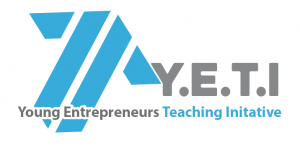 The project promotes the idea of self employment to young people as a viable route to employment and creates learning opportunities that enable them to explore this option further. For those that want to progress, it provides a new approach and a new pedagogy for entrepreneurship training using teams of Young Ambassadors, 20 in total in the pilot, who are themselves successful young entrepreneurs to act as role models, deliver workshops and peer support through a young entrepreneur network. The project outputs include all the materials and resources that other organisations need to replicate the model together with a training video. The materials include a Training the Trainer pack for training the Young Ambassadors in workshop design, presentation skills, coaching and mentoring skills as well as an innovative curriculum and and methodology for entrepreneurship education.
The project promotes the idea of self employment to young people as a viable route to employment and creates learning opportunities that enable them to explore this option further. For those that want to progress, it provides a new approach and a new pedagogy for entrepreneurship training using teams of Young Ambassadors, 20 in total in the pilot, who are themselves successful young entrepreneurs to act as role models, deliver workshops and peer support through a young entrepreneur network. The project outputs include all the materials and resources that other organisations need to replicate the model together with a training video. The materials include a Training the Trainer pack for training the Young Ambassadors in workshop design, presentation skills, coaching and mentoring skills as well as an innovative curriculum and and methodology for entrepreneurship education.
There are a set of detailed entrepreneurship training modules complete with indicative content, trainer notes and a menu of activities. This is supported by a large databank of web based multimedia materials so that the programme can be delivered on line as well as face-to-face.
Why YETI?
The incentive for this project was that outside the formal education system, existing structures for supporting young entrepreneurs are not working. The popular ‘one-stop-shop’ model presupposes that someone already has a business idea and focuses on how this can be taken to market. Young people need much earlier intervention to help them think creatively and generate the ideas. Also there is a problem of scale and the standard formal instruments (such as bank-generated business plans etc) do not meet the needs of, for example, the 16 yr old who wants to start a window cleaning round. Nor do the existing agencies actually provide real entrepreneurship skills training or help young people set up alternative business models such as social enterprises.
You find many more details on the YETI-website: www.yetierasmus.eu
This project has been funded with support from the European Commission. With the support of the EU Erasmus+ programme, KA2 Strategic Partnership Project (2015-2-UK01-KA205-014040).

